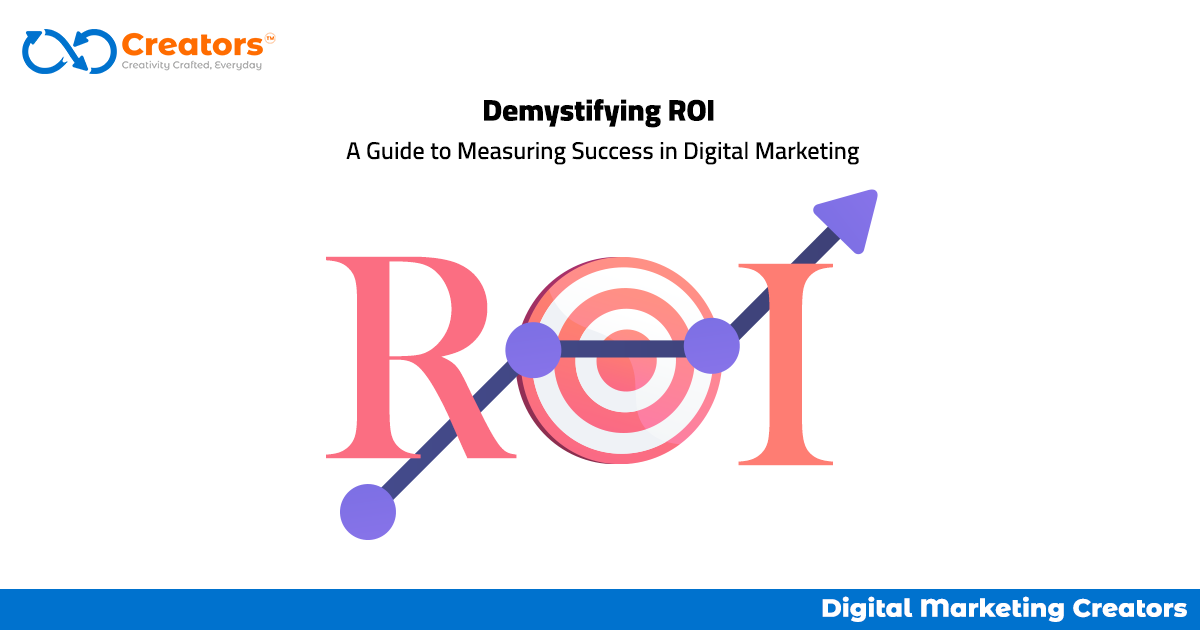A Guide to Measuring Success in Digital Marketing
1. The ROI Imperative in a Digital Age
This report explores the critical role of Return on Investment (ROI) measurement in digital marketing campaigns. Depending on insights from a comprehensive research study published on ResearchGate (“Evaluating ROI in Digital Marketing Campaigns: Metrics, Measurement, and Insights”, we delve into the complexities of calculating ROI and offer practical guidance for maximizing the effectiveness of your marketing efforts. In today’s data-driven marketing landscape, understanding and measuring ROI is no longer optional; it’s essential for optimizing campaigns, maximizing resource allocation, and demonstrating the true value of marketing to your organization.
2. Research Methodology: Shedding Light on ROI Measurement
- Surveys: A survey was sent to marketing professionals across various industries to gather insights into their current ROI measurement practices, the challenges they face, and the metrics they find most valuable.
- Interviews: In-depth interviews were conducted with marketing leaders from successful companies to understand their strategies for measuring and optimizing marketing ROI.
- Data Analysis: The study analyzes real-world marketing campaign data from various businesses to demonstrate how different metrics can be used to calculate ROI.
3. Key Findings: Unveiling the Secrets of Successful ROI Measurement
The research by Smith et al. (2024) highlights several key findings crucial for understanding and measuring ROI in digital marketing:
- The Multifaceted Nature of ROI: While some businesses prioritize revenue generated per marketing dollar spent, others consider brand awareness, lead generation, or customer engagement as key ROI metrics. Defining clear marketing objectives upfront is essential for selecting the most relevant ROI measurements.
- Beyond the Click: A Holistic View of Conversions: The study emphasizes the importance of tracking not just website clicks but also actions that indicate progress towards achieving your marketing goals, such as form submissions, downloads, or purchases.
- Data Analytics is Key: Leveraging marketing automation tools and data analytics platforms allows for comprehensive campaign tracking, data visualization, and deeper insights into customer behavior. This facilitates a more accurate assessment of ROI and allows for continuous campaign optimization.
Insights and Interpretations:
This report expands on the key findings by offering insights and interpretations:
- The growing complexity of the digital marketing landscape necessitates a data-driven approach to measuring success. Focusing solely on traditional metrics like website traffic can paint an incomplete picture of a campaign’s effectiveness.
- Businesses need to move beyond a “one-size-fits-all” approach to ROI measurement. Defining specific goals for each campaign and aligning them with relevant metrics ensures a more accurate assessment of the return on investment.
- Effective ROI measurement is not just about calculating a number. It’s about gaining valuable insights into customer behavior, identifying areas for improvement, and optimizing campaign performance to achieve desired results.
4. Implications for Marketers and Businesses: Putting ROI Measurement into Action
Based on the research findings and interpretations, this section offers actionable recommendations for marketers and businesses to improve their ROI measurement efforts:
- Set SMART Marketing Goals: Define Specific, Measurable, Achievable, Relevant, and Time-bound goals for each marketing campaign. These goals will guide your selection of relevant metrics to track ROI.
- Embrace a Multi-Metric Approach: Don’t rely solely on a single metric to gauge success. Track a combination of metrics such as conversion rates, cost per lead, customer lifetime value, and brand awareness metrics depending on your campaign goals.
- Utilize Data Analytics Tools: Invest in marketing automation and data analytics platforms to collect, analyze, and visualize campaign data. This allows for deeper insights and data-driven decision making.
- Conduct Regular Reporting and Analysis: Schedule regular reporting cycles to analyze your marketing data and measure ROI. This enables you to identify trends, optimize campaigns mid-flight, and adjust strategies as needed.
Considerations for Different Marketing Areas:
- Content Marketing: Track metrics like website traffic, organic search ranking, social media engagement, and lead generation from content to assess the effectiveness of your content marketing efforts.
- Social Media Marketing: Track metrics like follower growth, engagement rates (likes, comments, shares), click-through rates on social media ads, and website traffic generated from social media platforms.
- Search Engine Marketing (SEM): Monitor metrics like keyword rankings, impressions, click-through rates (CTR) on search ads, and conversion rates from paid search traffic.
- Email Marketing: Focus on metrics like open rates, click-through rates, conversion rates from email campaigns, and customer lifetime value.
The specific metrics you choose will depend on your unique marketing goals and industry. However, a data-driven approach that utilizes a combination of relevant metrics is crucial for gaining a comprehensive understanding of campaign performance and achieving a positive ROI.
Still grappling with measuring ROI in your digital marketing efforts? Digital Marketing Creators can help! Our team of marketing specialists possesses extensive experience in developing and implementing data-driven marketing strategies. Explore our comprehensive suite of services.
Let us be your partner in achieving digital marketing success! Contact us today for a free consultation and discover how we can help you unlock the full potential of data-driven marketing and achieve measurable results.






